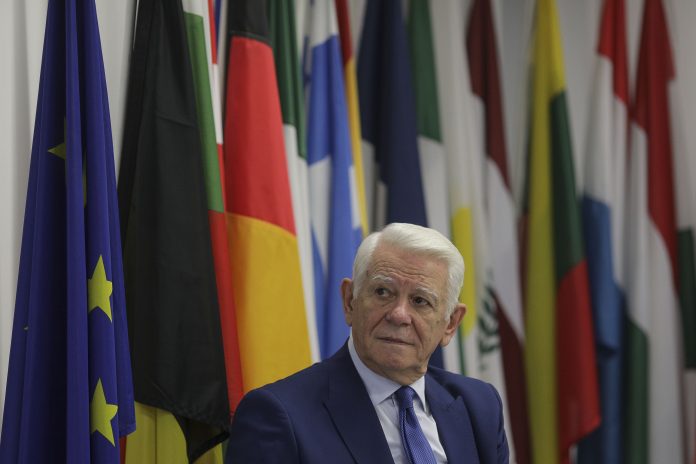Thirty years ago, Teodor Melescanu was a diplomat for Communist regime of Nicolae Ceausescu. He’s now Senate speaker and one of Romania’s great political survivors since 1989.
But his past may be catching up with him. The government institute tasked with investigating crimes committed by the communist regime on Tuesday said it was investigating whether Melescanu committed a crime when he lied to foreign diplomats in Vienna about a brutal crackdown by communist authorities during the 1989 anti-communist revolution.
The Institute for Investigating the Crimes of Communism said Melescanu was suspected of “disinformation and diversion” connected to remarks he made in Vienna on December 19-20, 1989.
The institute said it was looking into the “circumstances and conditions” of remarks made by the diplomat Melescanu “in the context of crimes against humanity carried out by the authorities of the communist regime.”
The statement referred to Melescanu’s presence at a meeting of the Organization for Security and Cooperation in Europe when he opposed a moment of for people who had died or been injured in Timisoara where the uprising started on December 16, 1989.
It said that “according to diplomatic telegrams, Melesancu… participated in his official capacity in disinformation and diversion exercised by the totalitarian communist regime, deceiving the diplomatic representatives present about the crimes and abuses committed in Timisoara.”
Melescanu described “crimes committed by the communists as „rumors spread around with malicious intent” and “unconfirmed news reports.”
It said it was reviewing what “acts with possible criminal consequences” Melescanu could be charged with. There was no immediate comment from Melescanu. If the institute decides Melescanu had committed a crime, it could file its conclusions to prosecutors to decide whether to press charges.
Melescanu was director of the Foreign Intelligence Service from 2012-2014, and served as defense minister between 2007-2008. He was foreign minister from 1992 and 1996,briefly in November 2014, and from 2017-2019.
He graduated from Geneva University in 1968 and later became a diplomat for the communist authorities, and was posted in Vienna at the time of the revolution.
The institute was set up in 2005 by former Prime Minister Calin Popescu Tariceanu. It received national and international acclaim under former director Andrei Muraru who initiated investigations into 35 former prison guards including the notorious Alexandru Visinescu and Ion Ficior who were the first officials from the early years of communism to go on trial in Romania.
They became national symbols of the Communist era’s brutality against its own people, most of whom who had simply fallen afoul of the regime. They both died in jail.
Last week, Prime Minister named Alexandra Toader, 34, as the new director of the institute. She replaces theologian and priest Radu Preda, who was fired for mismanagement.
Romania had about 500,000 political prisoners under the Communist regime that was in power from 1947 until 1989, about one-fifth of whom died while in detention, according to historians.



















